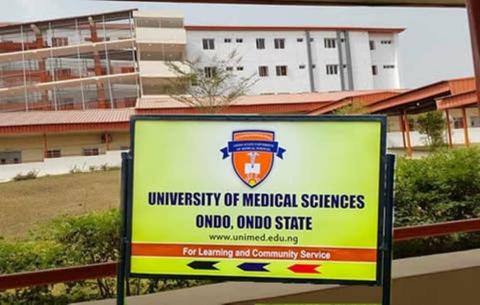The University of Medical Sciences (UNIMED), Ondo, has refuted recent media reports alleging a blanket tuition fee increase across all its programs. The university clarified that the fee adjustments apply solely to newly admitted students, particularly those enrolled in professional programs, and not to returning students. This clarification comes in response to parental concerns and media reports misrepresenting the situation. UNIMED emphasized that returning undergraduates will continue to pay the previous tuition fees, assuring parents and students that the university would not implement policies that would inflict undue financial hardship.
The decision to adjust fees for new students, particularly in professional programs, was not taken lightly by the university’s management. It was a necessary measure to ensure the continued delivery of high-quality medical and health sciences education, given the rising operational costs across all sectors. UNIMED underscored its commitment to providing excellent training for healthcare professionals and highlighted the importance of these adjustments in maintaining the standard of its programs. The university emphasized its transparent fee structure, urging concerned individuals to contact the institution directly for accurate information, as fees vary depending on the program.
Contrary to some media portrayals that generalized tuition costs based on the fees for the medical program, UNIMED clarified that tuition fees vary significantly across its programs. Fees range from N150,000 to N450,000, depending on the specific course of study. This clarification aims to dispel the misconception that all programs experienced a fee hike and to provide a more accurate representation of the university’s tuition structure, ensuring that prospective students and their families are informed of the actual costs associated with different programs.
UNIMED acknowledged the prevailing economic realities in the country and assured the public of its commitment to not exacerbating the financial burden on its students and their families. The university’s response reflects its sensitivity to the economic challenges faced by many Nigerians and its dedication to providing accessible education while upholding high standards. This responsiveness to the economic context further reinforces UNIMED’s commitment to its students and their families, and it distinguishes the university’s approach to fee adjustments as a necessary measure for maintaining quality rather than an arbitrary increase.
Established in 2015 as Nigeria’s first specialized medical university, UNIMED has rapidly gained recognition as a prominent institution for healthcare education. This distinction underscores the importance of its programs and the need to maintain the resources necessary to deliver quality training. Like other public universities in Nigeria, UNIMED faces the difficult task of balancing the rising cost of delivering quality education with the economic realities of the country. Balancing these competing demands requires careful financial planning and, at times, adjustments to ensure the sustainability of its programs in the face of inflationary pressures and limited government funding.
The issue of tuition hikes in Nigerian universities is a subject of ongoing public discourse, often sparking protests from students and parents concerned about the affordability of higher education. While institutions argue that these increases are essential for covering operational costs and maintaining educational standards, students and their families often bear the brunt of these adjustments, leading to a continuous dialogue on the balance between affordability and quality in higher education in Nigeria. Debates surrounding tuition hikes often highlight the challenges faced by public institutions in balancing the needs of students with the economic realities and the need to maintain and improve the quality of education offered.


